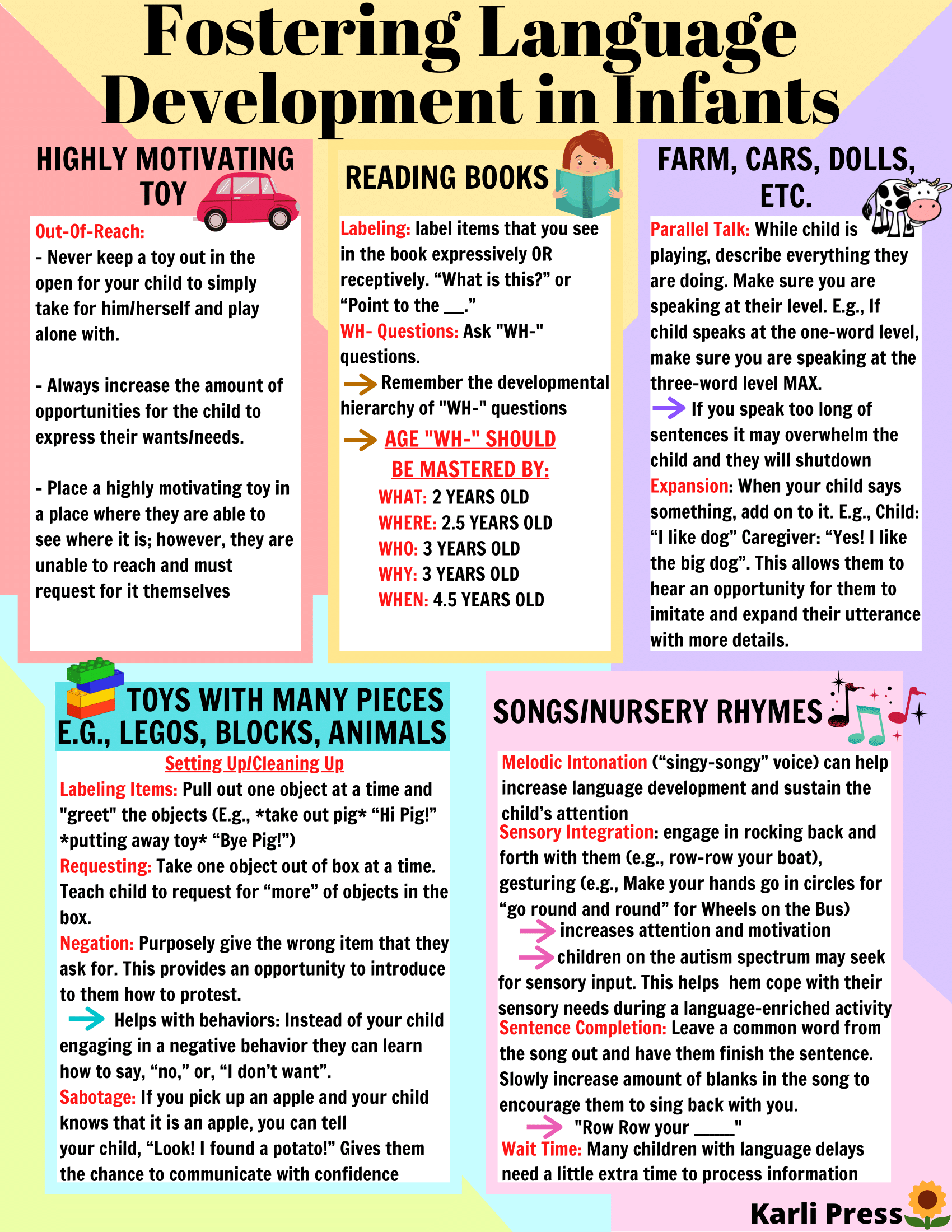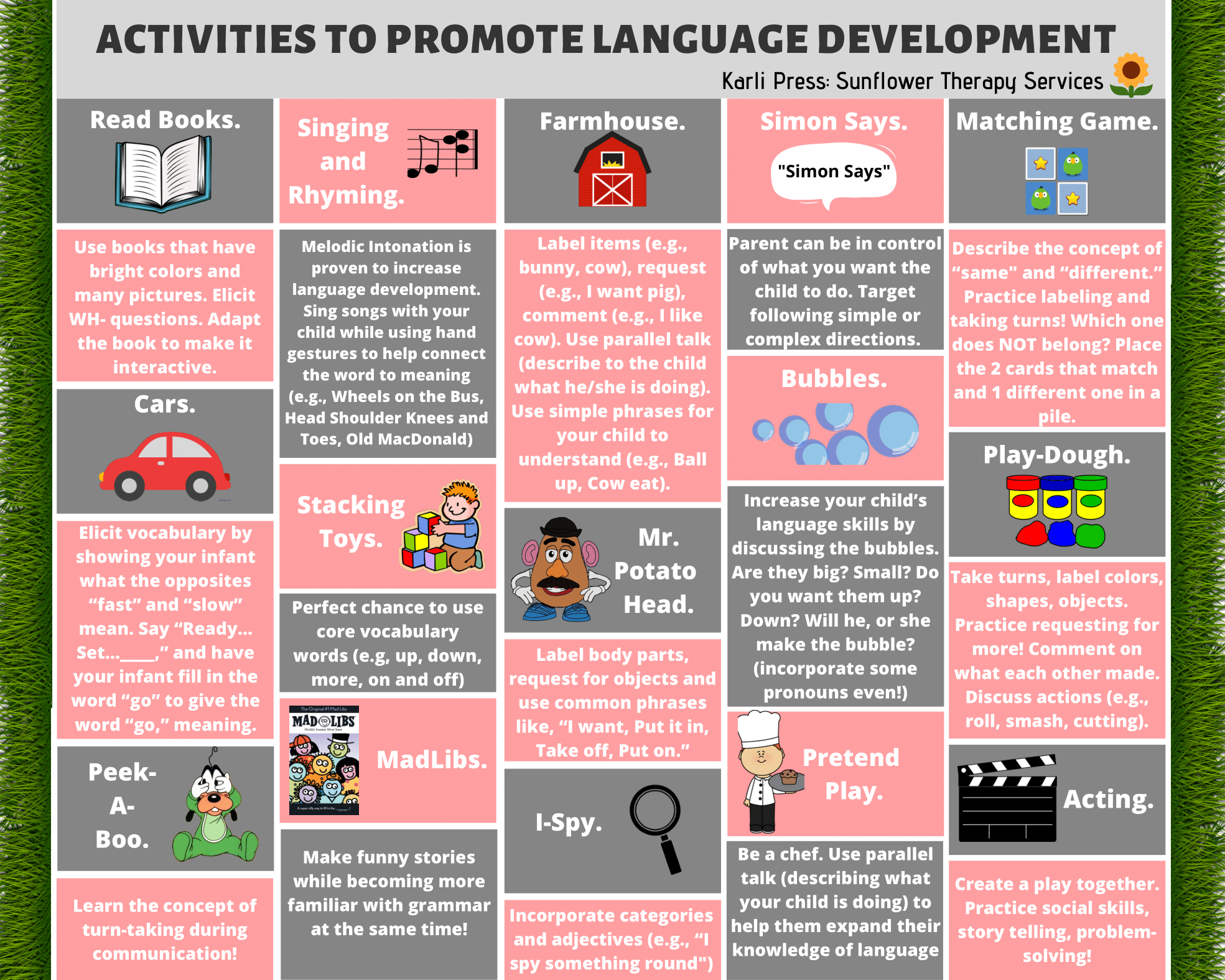Boosting Speech with Language-Enriched Activities
In This Article
- Boosting Speech with Speech Blubs
- Singing Songs/Nursery Rhymes
- Sensory Integration
- Sentence Completion
- Wait Time
- More Language Activities . . .
- Playing with a Highly Motivating Toy (whatever it is, doesn’t matter)
- Out-of-Reach
- Toys that Have Many Pieces (e.g. Legos, Dolls, Play Food)
- Setting Up/Cleaning Up
- Playing With Farm/Car/Baby Dolls (etc.)
- Parallel Talk
- Expansion
- Reading Books
- Even more Language Activities
Are you getting to the end of your ideas for language activities with the kids ALWAYS home? Think of this blog as a support system, one that can help you provide fun learning opportunities in lieu of speech therapy or to make up for fewer social meetups during this pandemic.
Boosting Speech with Speech Blubs
Speech Blubs is a language therapy app with a vast library of more than 1,500 activities, face filters, voice-activated activities, and educational bonus videos. Start your free trial today and explore engaging at-home language activities for kids such as learning numbers, colors, shapes, animals, and much more!
Singing Songs/Nursery Rhymes
Studies have shown that melodic intonation (“singy-songy” voices) can help increase language development and sustain a child’s attention.
For example:
Sensory Integration
While singing these songs, engage them in some rocking back and forth with them (e.g., row-row your boat), gesturing (e.g., Make your hands go in circles for “go round and round” in Wheels on the Bus)
Studies show that sensory integration is a large part of increasing motivation and attention for a child to engage in the activity/play
Many children who are on the Autism Spectrum tend to seek for the sensory input, therefore this is helping them cope with their sensory needs while maintaining a language-enriched activity.
Sentence Completion
Once your child starts understanding the song, leave a common/popular word from the song out and have them finish the sentence. Slowly increase the amount of blanks in the song to encourage them to sing back with you.
Example - “Row-Row your ______”
Wait Time
Many children with language delays need a little extra time to process information. It might get awkward, but when you leave a blank or become silent during play, it encourages your child to express something. It’s always important to give your child as many opportunities to speak as possible.

More Language Activities . . .
Playing with a Highly Motivating Toy (whatever it is, doesn’t matter)
Out-of-Reach
This is my favorite! It works like wonders!
Toys that Have Many Pieces (e.g. Legos, Dolls, Play Food)
Setting Up/Cleaning Up

Playing With Farm/Car/Baby Dolls (etc.)
Parallel Talk
Expansion

Reading Books
Even more Language Activities
If you fly through these, and need some more advice, contact our speech therapist and she’ll give you some top tips.
 By Karli Press
By Karli Press